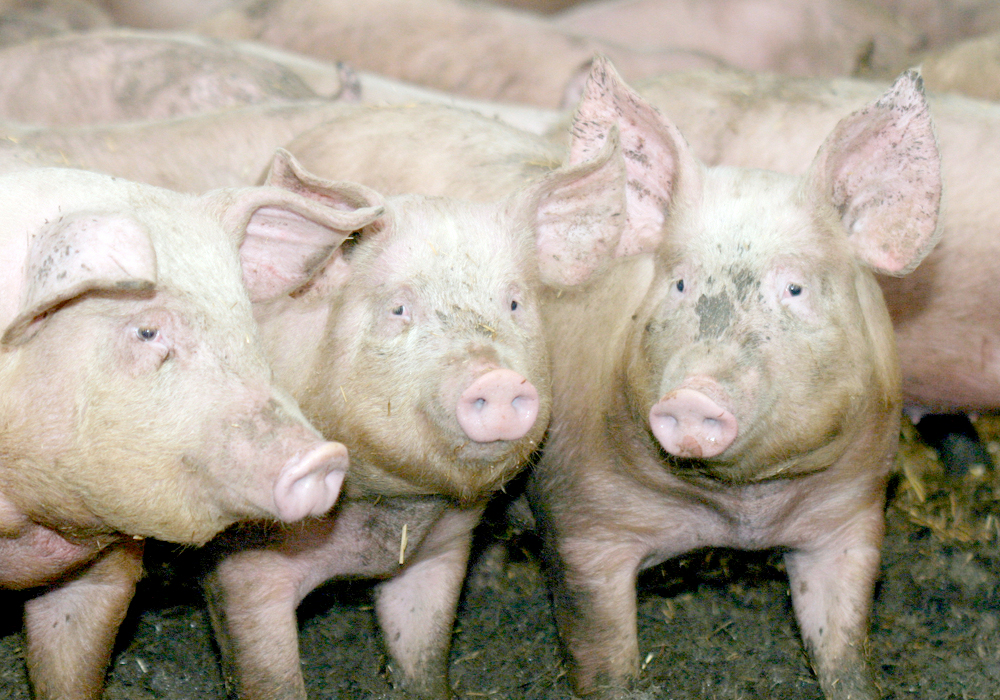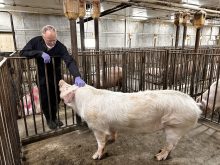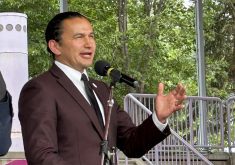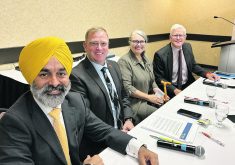The NDP may gain power in Manitoba, but it doesn’t appear that it will return to the combative relationship with the hog and pork industry that characterized its 13 years in power until 2016.
Its agriculture critic struck a constructive and partnership-focused tone during an agricultural forum and other NDP candidates have not appeared to target farmers.
“We need to produce food sustainably while taking care of the environment. We need to feed billions without damaging our natural resources permanently,” said Diljeet Brar, the NDP agriculture critic and a former instructor in agriculture at an Indian university, as well as a former Manitoba Agriculture employee.
Read Also

New coal mine proposal met with old concerns
A smaller version of the previously rejected Grassy Mountain coal mine project in Crowsnest Pass is back on the table, and the Livingstone Landowners Group continues to voice concerns about the environmental risks.
“What (the) NDP’s plan is (is) to listen to the experts and listen to the farmers and farming community (to see) how we can work together, sit around a table and have a plan.”
He was speaking about the party’s approach to environmental regulations, carbon taxes and sustainability, but his tone was similar on other issues.
Hanging over the election for some farmers has been the previous NDP government’s hog barn moratorium, which helped throw the enormous farming sector and industry into stagnation for a decade, as well as its perceived interest in increasing environmental regulations.
PC candidate and current agriculture minister Derek Johnson directly confronted Brar with the moratorium’s legacy, and had a short response to the question of whether his government, if re-elected, would increase environmental regulations on farmers.
“Absolutely not,” he said.
He also defended the value of hog and other manure, which he described as a valuable source of nutrients and superior to synthetic fertilizers.
In Manitoba, water issues can become intense and divisive, more so than in most provinces. Manitoba sits at the bottom of several enormous watersheds that cover Western Canada and large parts of North Dakota and Minnesota, so conflicts tend to flow downstream.
Green Party leader Janine Gibson said present manure management policy isn’t working.
“Just ask the fishers of Lake Winnipeg if our current manure management plans are working effectively,” said Gibson.
“It’s having a very negative effect on our fisheries.”
Johnson responded that the biggest single cause of nutrification to Lake Winnipeg is Winnipeg’s north end water treatment centre.
Gibson, an organic inspector, said she has seen manure handled well and sustainably, and would like to see its proper use help reduce the emissions caused by the giant Simplot potato plant in Portage la Prairie, which she said is the biggest greenhouse gas emitter in Manitoba.
Brar said an NDP government would work closely with experts like those at the University of Manitoba on better managing Manitoba’s water, environment and economy.
And he chastised the PC government for what he said were agricultural service reductions on its watch.
“They cut staffing and closed ag offices, so without having that workforce that extends that knowledge and bridges the gap, how is it possible to achieve those goals?” said Brar.


















